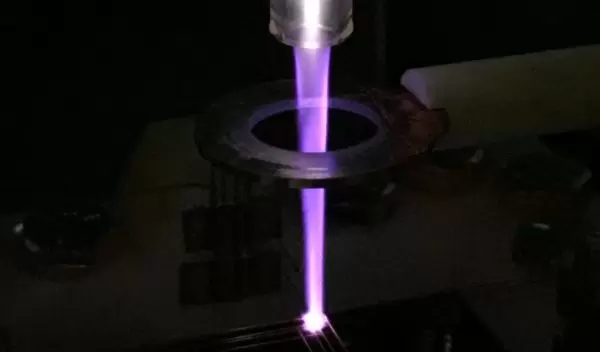
Professor Developing Medical Equipment Decontamination System to Battle COVID-19
As caregivers struggle with shortages of medical equipment during the COVID-19 pandemic, George Washington University engineering professor Michael Keidar is helping to develop a "plasma brush" that could help decontaminate protective masks, gloves and other necessary gear for reuse.
The National Science Foundation awarded the team a Rapid Response Research grant (RAPID).
"There is significant long-term need for the manufacture of surgical masks, but in the short term we have to find a solution," Keidar said.
Building on his research on the use of cold plasma in cancer treatment, Keidar hopes to apply the technology to cleanse equipment, surfaces and even small-space airflow as medical professionals battle the COVID-19 pandemic.
Plasmas are a form of ionized gas -- meaning they contain a proportion of charged particles -- that are highly effective in inactivating microbial pathogens. Plasmas typically exist at extremely high temperatures, but "cold" atmospheric plasma, on which Keidar's research centers, requires only the gas's electrons to be at elevated temperature, making this form of plasma safe for use on and near humans. Additionally, atmospheric cold plasma differs from traditional disinfectants because it doesn't use a liquid agent, making it safe for use on damage-prone surfaces.
Keidar and the National Science Foundation's Industry-University Cooperative Research Program (IUCRC) Center for High Pressure Plasma Energy, Agriculture and Biomedical Technologies (PEAB), along with researchers from Drexel University and the University of Michigan, submitted a proposal to NSF to develop a plasma-based system for decontamination.
The proposed "brush" system is expected to be "very fast -- you can just scan the surface one time and that's it," Keidar said.
Another advantage to plasma decontamination is that it is highly adaptive, says Keidar.
Although much of his work is now focused on providing solutions for the coming months, Keidar and his team are also thinking about the less immediate future.
"We may well have another phase [of COVID-19] next year, so we need to be prepared," he said.
NSF IUCRC program director Gregory Reed added, "The work being performed by Michael Keidar and his colleagues across the PEAB Center is critical in helping to advance solutions that proactively address the impacts of the COVID-19 pandemic. Based on the PEAB Center's work in the area of cold plasma science over the years, they were in a strong position to propose this particular decontamination approach, and the NSF IUCRC RAPID grant will help to accelerate its development."


